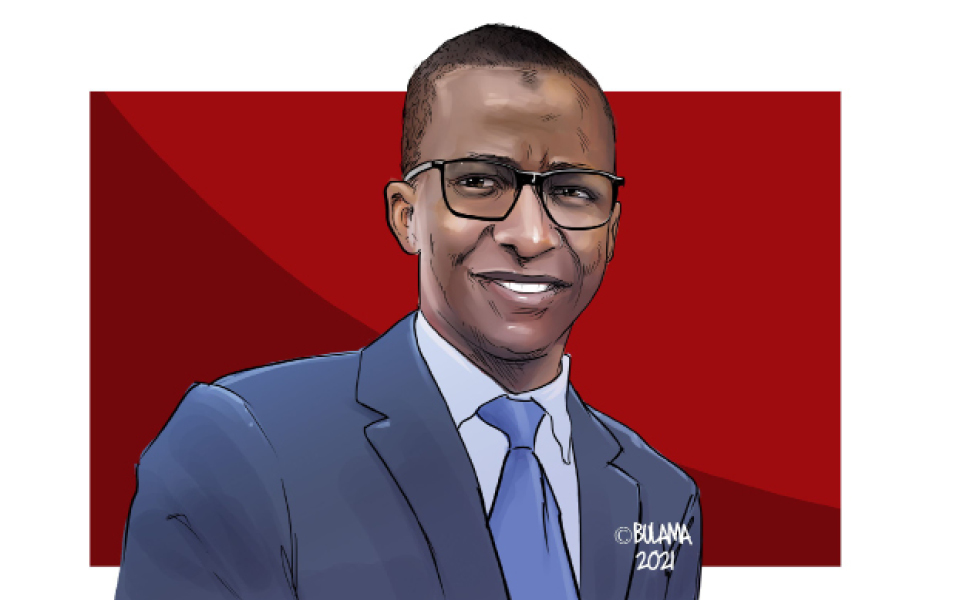In the United States, a country whose constitution we have copied almost verbatim, Senate’s confirmation hearings on the appointees of the executive to certain offices of the state, are moments of intense ideological battle and political drama. But they are often moments in which American democracy is animated and relived by its citizens. Depending on the nominee or the office, everyone participates in some form.
When Trump nominated the ultra-conservative billionaire, Betsy DeVos, for the position of Education Secretary in February 2017, a senator received over 50,000 emails from his constituents to vote ‘No’. One citizens’ group made 18,000 calls to 23 senators to have their say. Some 300 state lawmakers wrote to Congress, rejecting her nomination, while 18 Republican governors supported it. Newspapers ferreted out nearly everything she had ever said about education. The final Senate debate lasted 30 hours and still ended in a 50-50 tie, broken by the then Vice President Pence, as two Republicans joined all 48 Democrats to vote against the nomination.
- EXCLUSIVE: Why I recommended Bawa for EFCC job – Malami
Despite N134bn allocation, senators, reps seek more funds
Perhaps, we have copied mostly the theory, not so much the practice. Since our own politics is largely devoid of ideology, confirmation hearings tend to be drab, requiring nominees to do no more than sing the national anthem or “take a bow and go”. But the confirmation of Malam Abdulrasheed Bawa as the chairman of the Financial and Economic Crimes Commission (EFCC) three weeks ago was a credible exception that animated both Nigerians and the Senate itself, a chamber sometimes unfairly dismissed as the hallmark of legislative laziness. The senators raised more than 30 different issues, all of them relevant to the person of the nominee or the job.
But Bawa was well prepared, and it showed. Overall, he did two things. First, he laid to rest, in unmatched composure and eloquence, any doubt that still lingered about his qualification, capacity and experience for the job. He did that with rare humility and respect characteristic only of the truly learned, frequently stating that neither himself, nor the EFCC is perfect. More than that, he situated the anti-graft commission in a clear historical context and sketched a new path that he and the organisation under him would tread.
Of particular significance were three things Bawa said in response to grilling from various senators. He said he would try to reposition the EFCC to be more proactive, rather than reactive; that he would “curtail the usage of discretion” by officials of the commission in the conduct of their work, “from the office of the executive chairman down to the ordinary investigator’’. And that he would make a clear distinction between “fighting corruption and fighting corrupt people,” to use his own words.
As someone who wrote a doctoral thesis and is now writing a book on the connections between corruption, politics and the press in Nigeria, I can say, without hesitation, that these are some of the most important issues about corruption and the fight against it in our country. Furthermore, as one who has interviewed heads of anti-graft agencies and other leading actors in Nigeria’s ‘anti-corruption complex’, I will add that Bawa speaks with a clarity and depth of understanding of the subject, from both policy and academic perspectives that few have matched.
But what exactly is he saying? First, the more procedural question of reducing “the usage of discretion” in the conduct of the EFCC business. The most frequent charge against the commission and other anti-graft agencies in Nigeria is that they are selective and biased in the cases they pursue, and therefore, must be on a witch-hunt. This charge is justified, if not always true. When high profile persons accused of corruption complain of being selectively targeted, what they are saying is not so much that they are innocent, but that “why only me? I am not the only one!” Indeed, they are not.
The problem with the EFCC and all our anti-corruption agencies is that they don’t really have any impartial and impersonal criteria for selecting which specific cases to investigative or prosecute among the thousands of petitions they receive. So, without a clear procedure for selecting cases, and since no agency has the resources to investigate all petitions or prosecute all the cases it has investigated, anti-corruption officials use their own personal discretion to choose which cases to proceed with, and they tend to choose those cases with the highest media appeal, to legitimise their organisation before the public.
This means that the operational basis of anti-corruption law enforcement in the EFCC and other agencies is inherently subjective, though not deliberately so, and thus, not exactly as biased as public officials accused of corruption mostly claim. But the result is a tripodal contradiction: fewer successful high profile convictions alongside more media exposure and growing accusations of bias.
This is one thing Malam Bawa wants to change, and it is difficult to imagine anything more directly consequential for the EFCC’s public impact. It will not only improve the chances of success, but also win most Nigerians over on the side of the commission, a crucial element in its own right.
Designing such a procedure for the EFCC will not be easy, but must require the sort of strategic shift made by investigating magistrates in France, prosecutors in Italy and the Mollen Commission in New York in drawing up anti-corruption procedures that resulted in dramatic success and public support in the 1990s in those countries.
The other two issues Bawa raised during his confirmation are directly connected to each other, but rather more general than procedural matters.
By far, the biggest problem with anti-corruption in Nigeria can be understood by looking at the terms used to describe it: ‘war’, ‘fight’, ‘kill’, ‘eradicate’, and so on. These evoke a boxing-ring combat between anti-corruption officials and corrupt people in which anti-corruption comes out victorious, particularly against politicians, whom we love to hate. This is the dominant approach to anti-corruption in the EFCC, and is characteristic of the combat training of all its previous heads so far. It is also the most appealing approach in the popular imagination of Nigerians. Unfortunately, as anyone genuinely familiar with the subject will tell you, when pursued alone and by itself, it is almost useless, as our experience with it so amply demonstrates.
In a context of systemic corruption such as ours, there will hardly ever be a shortage of people who engage in it. So, even if you succeed in locking up many of them, and you are unlikely to succeed because corruption confers power to its beneficiaries that they can use to their advantage, new corrupt persons will simply replace those of yesterday in a never-ending vicious circle. Better then to focus on strengthening governance systems, on plugging regulatory loopholes, and on quietly monitoring key sectors to prevent corruption before it happens, all the while vigorously pursuing any case that fits a robust and impersonal set of criteria.
This is the agenda of the moment in Nigeria’s anti-corruption effort, briefly sketched. It is still easier said than done. But it is a sound one. We wish Malam Bawa and the EFCC luck. It will be needed.

 Join Daily Trust WhatsApp Community For Quick Access To News and Happenings Around You.
Join Daily Trust WhatsApp Community For Quick Access To News and Happenings Around You.

